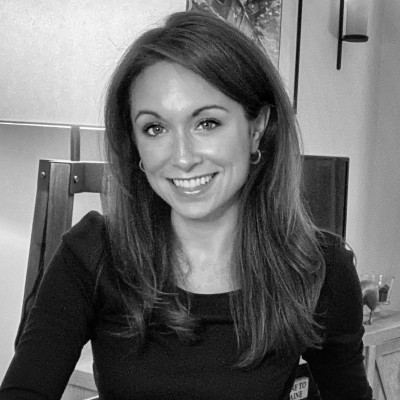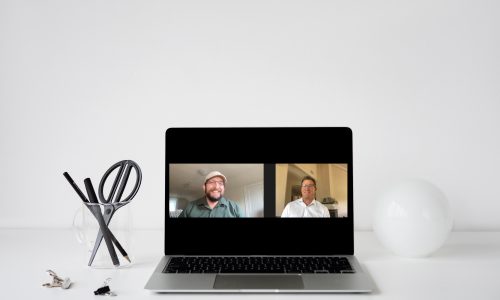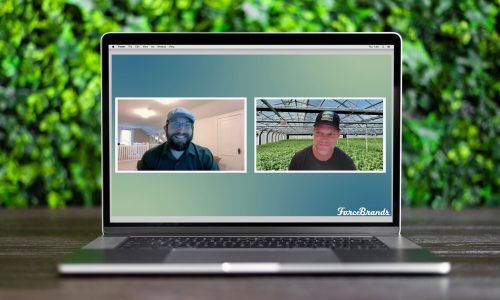Max Rudsten didn’t set out for a career in cannabis but ever since a ‘utopian’ moment inspired him to journey into the industry, he’s never looked back.
In this episode of Cannabis Matters, series host and ForceBrands’ Client Strategist Eric Rosen goes behind the scenes of POSIBL, an organic farm in Monterey County, Calif., that’s on a mission to grow the perfect flower, ethically, sustainably, cost-effectively, and free of pesticides year round.
Watch our exclusive interview with the company’s Chief Revenue Officer and read the transcript from the conversation below (edited for clarity).
Eric Rosen: Tell us about your background. How has your experience as a co-founder led you to this role at POSIBL where you lead commercial strategy around brand partnerships?
Max Rudsten: I started my career in a more corporate way. I majored in finance so I thought I had to get into Wall Street after school. I did that for about seven years but I always felt like I needed to create a business that I could kind of hold in my hands. In 2013, I decided to take the leap, pull the rip cord, and really get more entrepreneurial. That’s when I got into the distilled spirits world.
I started a distilled spirits brand that I began to scale and around that same time, that’s when I got into cannabis. I had some buddies with some kind of family cultivation assets. They wanted to bring me in as a partner to bring some business structure to what they were doing and then help them build a brand around their dad who was this legacy dude who had started this hippy commune in Kawai and he had grown weed in the jungles of Hawaii. It was this very utopian story that I wanted to tell, especially as a guy who had worked for a corporate bank for seven years.
So I went on this really interesting parallel path of building a brand and a business in a really regulated alcohol supply chain and doing the same in a really unregulated supply chain. Then, as things were legalizing closer to 2017, there was an opportunity to basically stand up a distribution business and that’s really where I cut my teeth in building a logistics business in a really fast-growing new industry.
That really set me up for where I am today because in essence, we were dealing with multiple brands — a lot of them failed and a lot of them succeeded. It gave me a good 360 kind of peripheral view of what brands did well to succeed and what brands did poorly to fail, and that really set me up to come to POSIBL.
ER: With respect to building brands, what are you seeing work well these days within cannabis?
MR: For me, it always comes down to the quality of the product. There always needs to be a fierce focus on quality. I think we’ve kind of digressed in California to really focus on price point as a means to get on the shelf. That can take away from the true essence of what a good brand is, which is the quality of the product. With that, there needs to be a really solid and scalable strategy for getting that brand onto the right shelves, going deeper with those shelves, but in the process being really authentic to that brand story and mission.
When you look at a brand that’s like truly authentic and driving a really authentic mission forward and then backing it up with a quality product and then a strategy to get it into the right shops, those are the things that when combined can really do well.
It also comes down to supply chain and making sure you have the right margins and the pricing structure and too often people don’t know their margins. They don’t know their cost basis and then they look at the books and they say, ‘Oh shoot, this isn’t the right channel for me to be in.’ All those things together create a better opportunity for the right brands.
ER: How do you think about building brands in their earliest stages with respect to people, process, and tools?
MR: Yeah, I’m a big believer in those three things needing to be in really good harmony.
When it comes to people, I really look for building teams with that entrepreneurial spirit. In cannabis, we are building this new industry so there are a lot of problems to solve, there are a lot of hats you have to wear, so you can’t be siloed in your skill set. You have to have a much broader perspective of how to build.
And for me, when I’m building teams, it’s about really finding folks who have that entrepreneurial spirit and can go after opportunities, come back with solutions, and really just drive and execute. Then having a toolset to give you the visibility in everything you’re doing. I mean tools to me is really the technology. It’s everything that then gives you that toolset to be able to execute and get the actionable insights to be able to grow more sustainably.
ER: How do you think about hiring the right mix of people for a cannabis company with respect to legacy talent versus talent that’s been imported from outside the industry because they’ve had experience with scaling businesses?
MR: When the industry first got going — this was 2018 — there was this incredible flood of human capital that came into the industry, both actual capital and then human capital. It was an exciting time because there were executives from CPG companies and people coming from alcohol and technology — all kind of flooding in with these different perspectives.
But then as things became challenging, you started to see a little bit of an exodus of talent and I think that harmony kind of tipped the wrong way and you started losing good talent.
Where I’ve seen success in terms of that barometer really being calibrated is around having a passion for the plant. If you have all these otherworldly business skills that you can bring to this industry but you then overlay that with the passion for the plant, those are the success stories in my opinion.
That’s where you really see that barometer in a really good place. It’s the folks who came into this thing for the big dollars — for the dollar signs falling out of trees — that you’re starting to see leak back into maybe the old traditional industries, which frankly isn’t all that great either right now.
So, I think it’s passion, it’s entrepreneurial spirit, and it’s a really good holistic business perspective that creates that good barometer.
ER: How are you and the company thinking about consumer preferences, and trends, and how to incorporate those data-driven insights into the way that you’re going to market?
MR: Consumer-driven data insights are challenging in this industry. I think that’s a big solve that most brands would like to get figured out as this thing continues to scale. We are kind of beholden to the retail gatekeepers to get our products onto shelves. There’s a lack of more traditional marketing channels.
I’ve seen a lot of success in brands being able to kind of latch on to maybe non-cannabis industry companies and do things like apparel collaborations in exclusive ways. Fidels is more of a traditional market brand that has worked their way into the traditional or legal market. They did a big collaboration with an apparel company called Carrots and that was a really good way to tap into the Carrots ecosystem and then funnel people back into the legal cannabis market to buy cannabis.
So it’s those types of strategies that I think are super important — looking at non-cannabis goods as a way to market to a broader audience and drive traffic, but then going back to my original point earlier in the conversation which is just being authentic and taking a grassroots approach to how you market to a community and a demographic within a specific region.
So for instance, we have a brand called HUMO, which is a Latino-focused brand. Over the holidays we do these toy drives where we get the farm workers together and we drive this mission of trying to get toys in the hands of people who are less fortunate. It’s really about how can you align yourself with the right organizations, the right brands for collabs to really create this more kind of holistic offering to the market.
ER: To be able to attract the widest variety of collaborations externally, which is super smart, is only going to be as effective as the teams that you build internally that are going to market to build those things. So how are you thinking about matching your talent strategy to your growth strategy in the marketplace today?
MR: Yeah, it’s a challenging one and you bring up a great point. If you do a collab, but you don’t have the right team, the right process, and the right strategy for actually maximizing that collab in a way that gets it into the eyes and ears of the most consumers possible, then you’re not going to get the ROI. So it is about really making sure you’re optimizing your strategy with the right people to be able to execute on these things.
In California, we all have to be really lean right now. There’s going to be a world and a time when more capital comes in and we’re going to be able to have more margin to be able to hire the right talent. But right now, it’s about how do we make the most efficient use of the talent we have today?
And that’s really where we’re at. We’re lean and we’re mean and that goes back to the entrepreneurial kind of spirit that we try to harness here at POISBL and the California cannabis industry in general. It’s about figuring out as we do scale, which we will, and the industry will scale, it’s about making sure that you hire the right resource for the right thing at the right time. And right now we’re just still lean and mean and trying to execute as best we can with the team we have.
ER: Looking at consumer preferences over the next year, two years, three years — what are you seeing in terms of what consumers are most likely to be into? What do you see from a consumer trend standpoint that either you’re building toward at POSIBL or you see another opportunity for elsewhere in the category?
MR: Yeah I think consumer preferences come down to this gatekeeper mentality that we’re still dealing with in California. We have a lack of retail. There are still large swaths of the California marketplace that have not allowed for cannabis retail so you still, as a consumer, unless you are extraordinarily educated, are only educated by the shops that are available to you and I think that’s unfortunate for the industry. Cannabis needs to become more ubiquitous for consumers to start driving trends.
It’s a very highly taxed industry so there’s a lot of money that’s being spent in the dispensaries and people just don’t really know what they don’t know. As the markets evolved, live rosin and live resin products have become way more in vogue as that has become more scalable. I think what I’d love to see is more of that because it’s the best way to consume the plant from that perspective.
I think beverages are massive even though they’re a small part of the pie. They’re going to continue to grow by demand. Drinking is such a social act. You can start to fold in live resin and live rosin into beverages for that maximum effect. I think it’s super interesting.
There are minor cannabinoids as you know that are really interesting like THCV. I know a lot of farms in California that have shifted a lot of their production to THCV, which is the “caffeine of cannabis” that doesn’t get you as high. It gives you a little bit more energy. I think those are some interesting things that we can continue to explore.
Away from that, we’ve been in a place that has somewhat stifled innovation lately because of what’s going on in California. It’s tough to innovate when you don’t have a lot of margin and a lot of capital. My hope is when we come out the other side of this thing, we’re going to start to see way more innovation and with that I think we’ll see more retail and therefore more consumer-driven trends.
But all the things I just mentioned are probably ones I’m going to be tracking along with really cool genetics.
Interested in learning more about the cannabis industry and how ForceBrands’ cannabis practice can help grow your business or career? Reach out to Eric Rosen to start the conversation.






